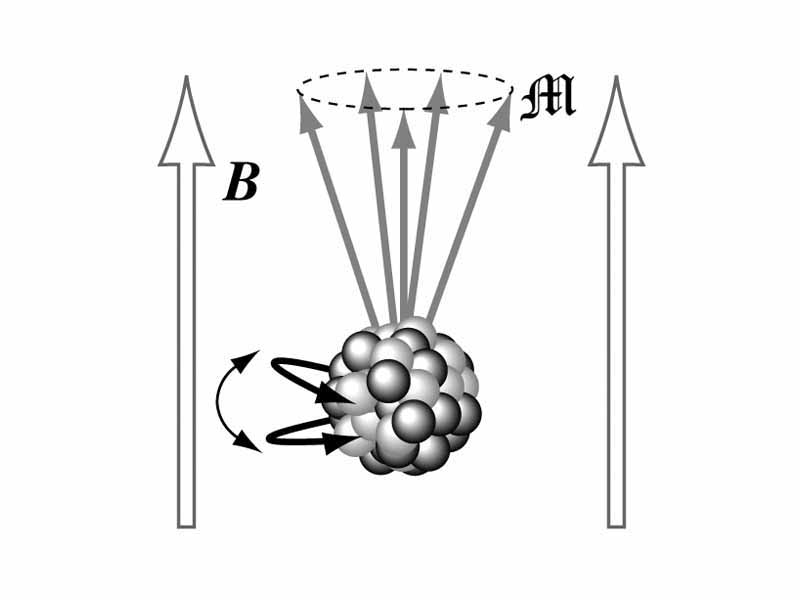Interdisciplinary Note (9 of 11)
Like an electron in an atomic or molecular orbital, a proton possesses the property of spin which can be designated by one of two quantum numbers +1/2 or -1/2. Normally these two spin states are equal energy and so they occur with equal probability. However, in the presence of an external magnetic field, one state will take on greater energy than the other. If the nuclear magnetic moment is aligned with the external field, the state is lower energy than if the magnetic moment opposes the field. The difference in energy is the basis of assay with a radiofrequency source. Energy is absorbed Nuclear Magnetic Resonance (NMR) for a nucleus receiving radio waves when they are at the same frequency that the spin magnetic moment is precessing about the applied field.
